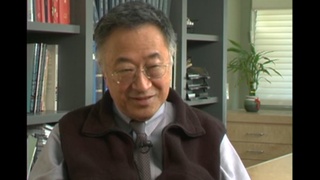Interviews
Experiencing prejudice after the war
You know, for me it was the same. I didn’t have much problem. But you know, come to think of it. One time I took my daughter into Hollywood and we’re walking around Hollywood. And we went to a restaurant there. And we sat there, we sat there for the longest time. So I asked them, I said, “We’d like to get served.” So they give us a menu there, but they never served us. So I told them again. And then finally, I said, I guess they don’t want to serve us so we walked out.
But we must have been sitting there for over half an hour. We used to go there, you know, before the war. It was nice there. But things have changed. But then after that, people weren’t that bad, they were really nice. So that was the only bad thing that I had. Well. War is war and I guess that just happens.
Date: May 24, 2011
Location: California, US
Interviewer: John Esaki
Contributed by: Watase Media Arts Center, Japanese American National Museum








